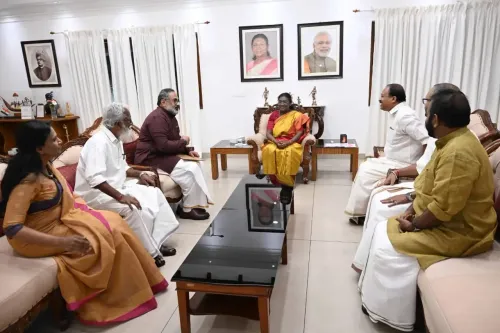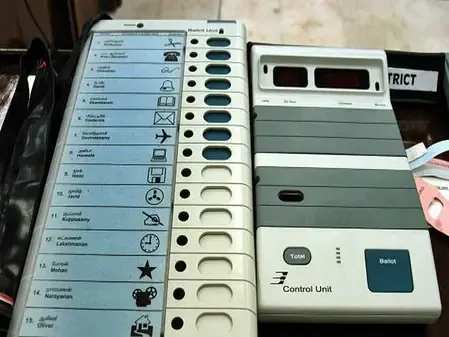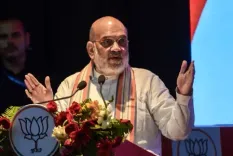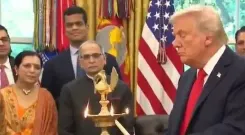Is Pakistan Deepening the Suffering of Genocide Victims in Bangladesh?
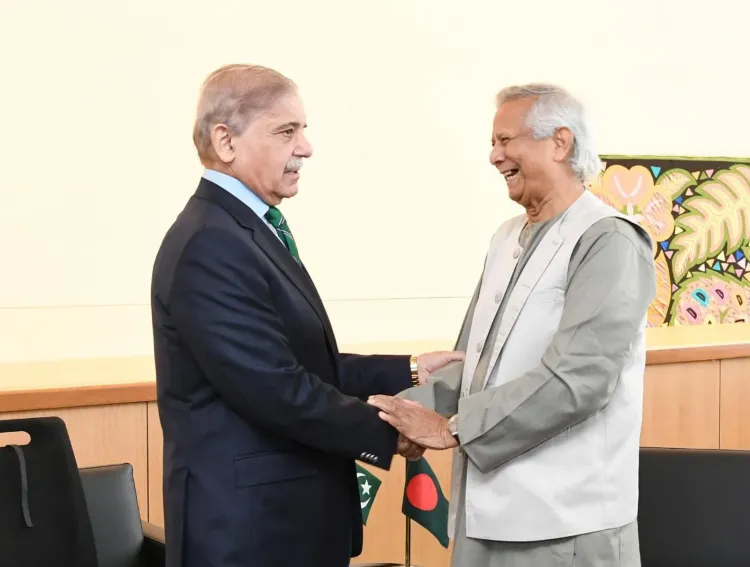
Synopsis
Key Takeaways
- Pakistan's denial of genocide continues to haunt Bangladesh.
- Unresolved financial claims add strain to diplomatic relations.
- Victims of the 1971 war remain without justice.
- Ongoing efforts by Pakistan's military to destabilize Bangladesh are evident.
- Calls for accountability and reconciliation are growing louder.
Dhaka, Sep 4 (NationPress) The unrepentant Pakistan, responsible for one of the most horrific genocides in South Asia's history aimed at thwarting the emergence of Bangladesh, has recently launched another attack that has deepened the anguish and suffering of millions of victims and survivors affected by the brutal war crimes of 1971, according to a report released on Thursday.
During his visit to Dhaka last month—the first by a Pakistani Foreign Minister since 2012—Pakistan's Deputy Prime Minister and Foreign Minister Ishaq Dar asserted that two of the three unresolved matters between the two nations concerning 1971, including a formal apology for the genocide, have already been addressed twice.
This statement came after Dhaka reiterated the need to resolve three longstanding issues related to the Liberation War of 1971: an official apology from Pakistan for the genocide, the repatriation of stranded Pakistanis, and Bangladesh's rightful share of pre-1971 undivided assets.
Dar, as noted by political analyst Anjuman Islam in the Eurasia Review, arrived in Bangladesh with promises of strengthening ties without mending the historical wounds. However, when questioned about any acknowledgment of the 1971 war crimes and calls for reparations, the minister stuck to the well-trodden path of Pakistani denial.
"Dar insisted these issues were resolved in 1974 and again in the early 2000s. In a blatant disregard for the victims and survivors of the 1971 war crimes, Dar even suggested that in light of Islam, the citizens of Bangladesh should cleanse their hearts," Islam wrote.
The unrepentant Pakistani minister preached about improving relations with Bangladesh while invoking Islam but refused to acknowledge the need for a war apology and reparations, thereby undermining Pakistan's credibility, as scholars and war heroes in Bangladesh urged the Pakistani diplomat to address his own heart first.
The report underscores that a series of diplomatic interactions have transpired between Pakistan and Bangladesh following the violent removal of the Awami League in August 2024, as Islamabad endeavors to extend its influence.
It was noted that, prior to Dar's visit, senior members of the banned terrorist organization Jamaat-ud-Dawa (JuD), linked to the mastermind of the Mumbai attacks, Hafiz Saeed, had attempted to justify the 1971 war crimes by resorting to anti-India rhetoric.
"The backing of the Pakistani state for these aggressively radical factions has been evident through their public appearances, further exposing the collaboration between state actors and non-state armed groups to portray millions of Bengali victims as Indian proxies, justifying additional genocidal actions against India," the Eurasia Review report specified.
Although the genocide concluded with the Pakistani Army's disgraceful public surrender on December 16, 1971, successive Pakistani authorities have gone to great lengths to defend the perpetrators and further dehumanize millions of victims over the past 55 years, representing a collective global disgrace that still echoes.
The report highlights that Pakistani Prime Minister Shehbaz Sharif's anti-India rhetoric to defend the genocide in 1971 was preceded by General Asim Munir, the Pakistani Army Chief, reiterating the military's longstanding narrative of the "fundamental differences between Hindus and Muslims" as the foundation of the Two-Nation Theory, which led to the creation of Pakistan.
Dhaka's financial claims against Islamabad amount to USD $4.32 billion as a fair share from the assets of undivided Pakistan prior to 1971. Additionally, Bangladesh has demanded USD $200 million in foreign aid that was sent to East Pakistan during the devastating Bhola cyclone in November 1970. "Neither Dar nor Pakistan's foreign ministry has provided any assurances for repayment, maintaining a long-standing denial," the report emphasizes.
The report mentions that Bangladesh has been hosting approximately 324,000 stranded Pakistanis (Urdu-speaking Biharis) residing in Mohammadpur Camp, also referred to as Geneva Camp, the largest and most well-known refugee settlement in Dhaka. This stateless population has drawn attention for negative reasons, including involvement in drug trafficking and other terror-related activities. In 1972, Bangladesh officially identified 195 Pakistani army officers responsible for heinous acts of genocide, mass rape, and killings. Pakistan has never held them accountable, and these officers have been rehabilitated into society, enjoying all state privileges.
The report emphasizes that when "war criminals" from Jamaat-e-Islami Bangladesh (JeI-BD), who aided the Pakistani Army, were executed by the regime of Sheikh Hasina, all predecessors of Dar had supported defending these notorious criminals.
In December 2013, the National Assembly of Pakistan passed a resolution condemning the execution of Abdul Qader Mollah, the "Butcher of Mirpur," a JeI-BD leader and member of the pro-Pakistan Al-Badr militia, who vehemently opposed the birth of Bangladesh.
In May 2016, following the execution of Ameer Motiur Rahman Nizami, Chief of JeI-BD and pro-Pakistan Al-Badr leader during the Liberation War, Pakistan's Foreign Office stated, "His only sin was upholding the constitution and laws of Pakistan." This statement from Pakistan ignited significant outrage in Bangladesh, further deteriorating relations.
The report concludes by stating that Pakistan's ISI continues to destabilize Bangladesh by regularly dispatching militants to instigate an Islamic revolution in the country and using it as a launchpad for orchestrating terror attacks against India.



